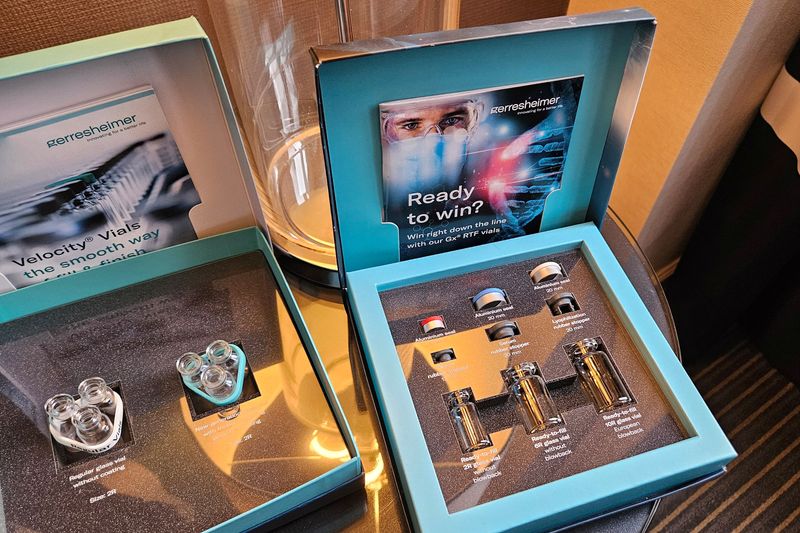By Patrick Wingrove
(Reuters) - Gerresheimer CEO Dietmar Siemssen said he expects about 4% of the company's revenue growth per year from deals to supply makers of drugs for weight loss and diabetes with vials, cartridges, syringes and autoinjectors.
The German company reported in February that it expects to grow an average of 10% per year. Nearly half of that will come from its association with drugs in the GLP-1 class, the CEO told Reuters. Novo Nordisk (NYSE:NVO)'s popular obesity drug Wegovy and Eli Lilly (NYSE:LLY)'s in demand Zepbound are GLP-1 drugs.
Siemssen said he expects sales related to GLP-1 medicines to surpass 100 million euros this year and to reach at least 350 million euros ($379 million) within the next three years, based on actual contracts and orders.
"We are just at the beginning of the ramp up towards the total market for (these drugs), and the biggest growth you will see from 2025 to 2027," he said.
Two analysts contacted by Reuters said they expect Wegovy on average to bring in sales of about $8.6 billion this year and $12.86 billion in 2025. They forecast sales of Zepbound to be around $4 billion this year and $10.8 billion next year.
Originally developed for type 2 diabetes, GLP-1s also reduce food cravings and cause the stomach to empty more slowly.
Analysts see the weight-loss drug market reaching at least $100 billion by the end of the decade, as consumers flock to Wegovy and Zepbound, which have been shown to reduce weight by as much as 20%, and other medicines in development.
JPMorgan in a report last year said Gerresheimer makes injection pens to administer the drugs for Novo and Lilly. Gerresheimer confirmed that its dual-chamber syringe would be used by Novo Nordisk for its experimental obesity drug cagrisema, according to a Jefferies note from this month.
Gerresheimer is already producing products for GLP-1 drugs in Germany and is ramping up a plant in Mexico that will also be used to produce them, Siemssen said.
"The Mexican plant will not only host GLP-1 products, but will be our key facility for the North American markets," he said.
The company manufactures pens that are used for GLP-1 drugs as well as other medicines in the Czech Republic, South America, and the U.S., and will produce them in China in the future, the CEO said.
The company also will start producing products that could be used for GLP-1 drugs out of a new facility in the U.S. in the fall of 2025, he added.
Brazil is the only South American country in which Gerresheimer manufactures, according to the company website.
Gerresheimer recorded 1.99 billion euros ($2.15 billion) in sales last year and said it expects revenue growth of 5%-10% this year and 10%-15% in 2025.
At least two of its rivals, including obesity drug cartridge supplier Schott Pharma (ETR:1SXP), are forecast to grow by more than 9% this year.

The main companies producing components for self-injectable drugs include West Pharmaceuticals, Ypsomed and Gerresheimer, according to a Bernstein research report published in August.
Ypsomed in September said it has signed a long-term supply deal with Novo Nordisk for autoinjectors.